Architecture of Split 3 Featured in MoMA's "Toward a Concrete Utopia" Exhibition (VIDEO)
The Museum of Modern Art (MoMA) in New York City is exhibiting Toward a Concrete Utopia: Architecture in Yugoslavia, 1948–1980, until January 19, 2019.
Where To Stay In Split (8): Travel To the Socialist Era
There is a lot of logic to begin this series with the oldest part of Split, Diocletian's Palace, and to end it in the eastern part of the city, mostly developed during the 20th century. When watched from the air, it looks like most of the modern parts in cities around the world, but even though you will not find usual Mediterranean charm as in some older neighbourhoods, don't rule it completely out as your accommodation choice.
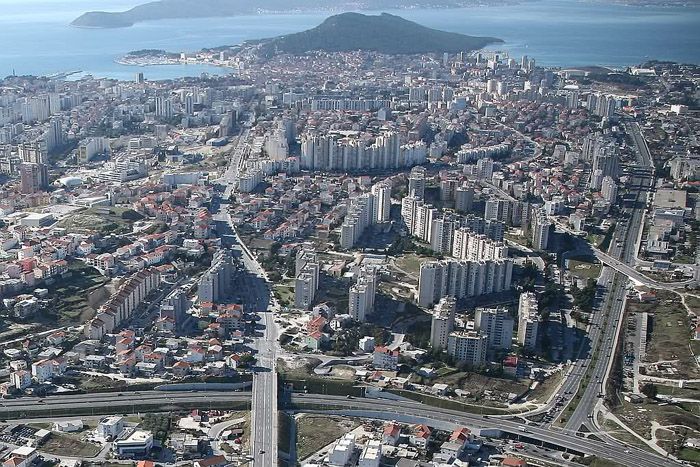
When we talk of new Split, we think of an area east of Bačvice and Firule, eastbound along the sea, and north of it, all the way to the city entrance from Solin or Dubrovnik directions. Or, east from Gripe, a neighbourhood we described in previous part. It's a huge area, highly populated, and mostly built in the socialism-era of Yugoslavia.
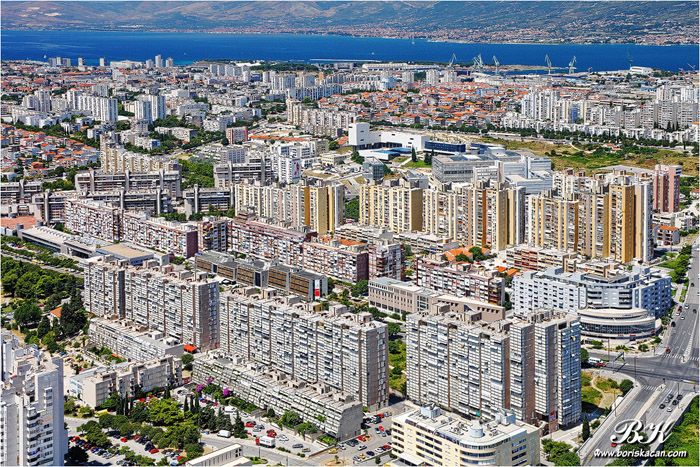
However, some of those buildings and streets are nice examples of modern residential architecture, especially parts locally called Split 3. This development, built in the 1970s, was internationally recognized as a good, human-oriented residential area. Unfortunately, it was never completely finished, which made it look a little bit worn out in some points. The latest addition is the new University of Split campus, still not finished completely.
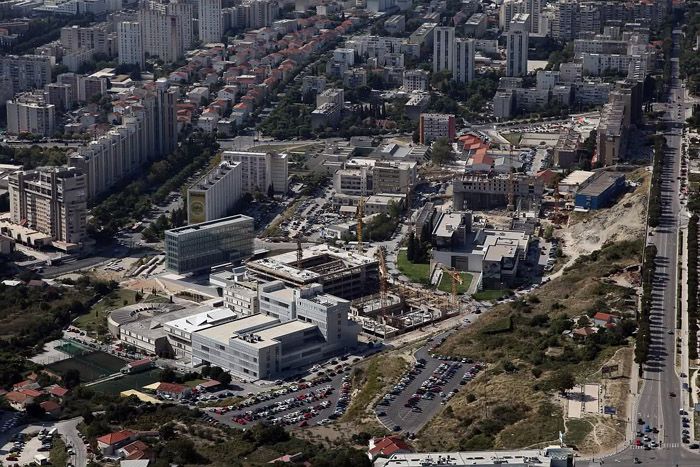
In the last few years, with the explosive growth of tourist arrivals, this area has become a second choice for visitors. There are lots of apartments available in high-rises everywhere, AirBnB random search for mid-June gave really nice results. A nice advantage is that they are reasonably cheaper than those in the old town, and Split is not really that big to make it impossible to go sightseeing. By car, even with heavy traffic, it's possible to reach city center in 10 to 15 minutes. For those who like to walk, there is a nice solution - about an hour long walk by the sea.
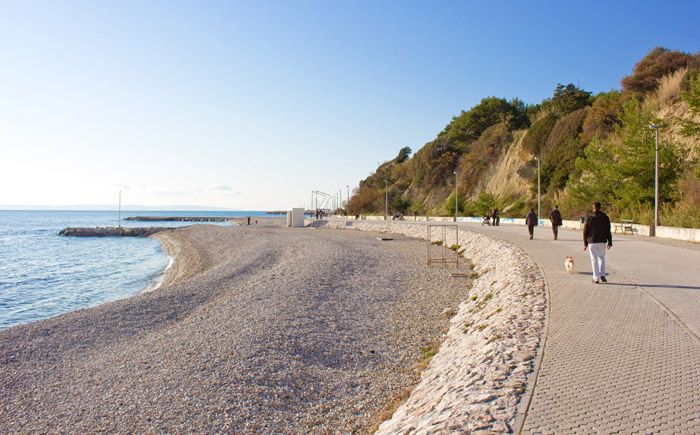
Beside apartments, usually pretty comfortable and in good shape, there is one little bit more upscale option, Radison Blu Resort, 4-star hotel settled right above the Trstenik beach. Its features are as expected from the chain hotel, and with some small boutique hotels in the city center, this is one of the most luxurious hotels in Split today.
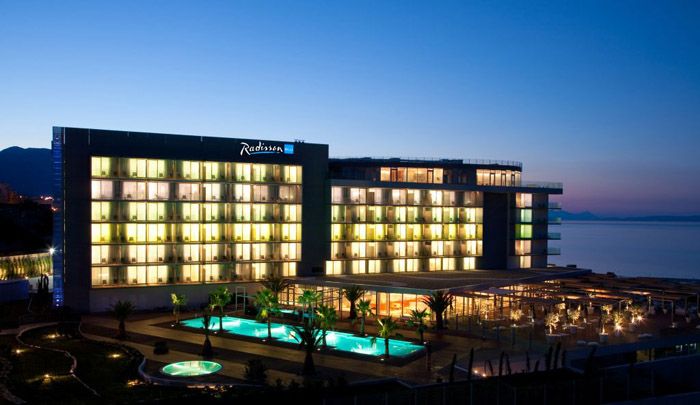
The hotel has its own swimming pool, but an easily accessible beach is not to be missed, as well as the excellent restaurants within the hotel. Of course, Radisson Blu is a very good solution for conferences and similar events.
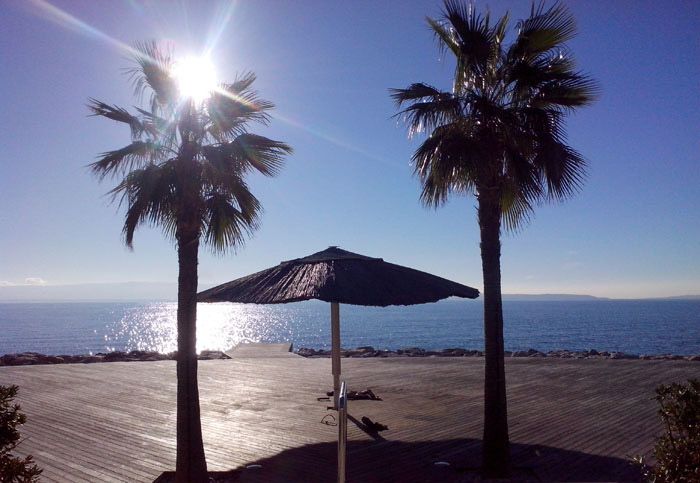
The whole of new Split is very well connected if you are coming with the car, and most buildings have their own parking lots, or even garages. If you decide not to drive to the city for sightseeing, you can always use the Split public transportation system. Since most of the Split inhabitants live there, most of the bus lines pass there. Ticket bought in the bus is 11 kunas for adults, 5 kunas for children age 6 to 10, and free for those younger. You can also buy 10-ticket packs in news-stands, each ticket is for two rides, and costs 17 kunas.
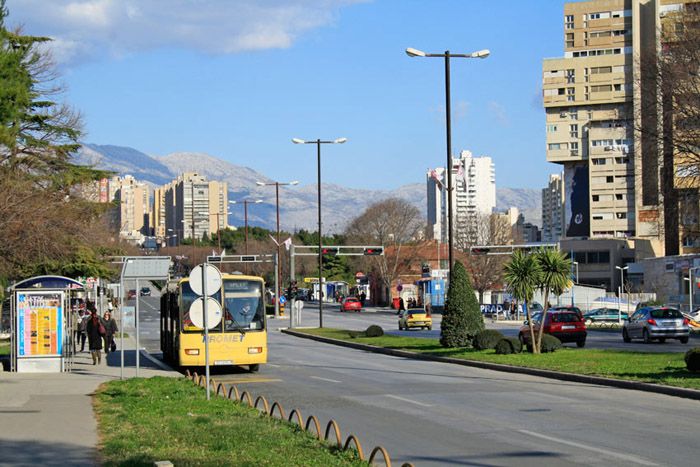
There are no sightseeing attractions in new Split, except if you are a socialism-style junky. However, the coast is mostly arranged as the beach, especially parts around Trstenik, near Radisson Blu, and Žnjan (pron. Zhnyan) plateau. In the summer some parts can be a little bit crowded, but not as some even more popular beaches like Bačvice.
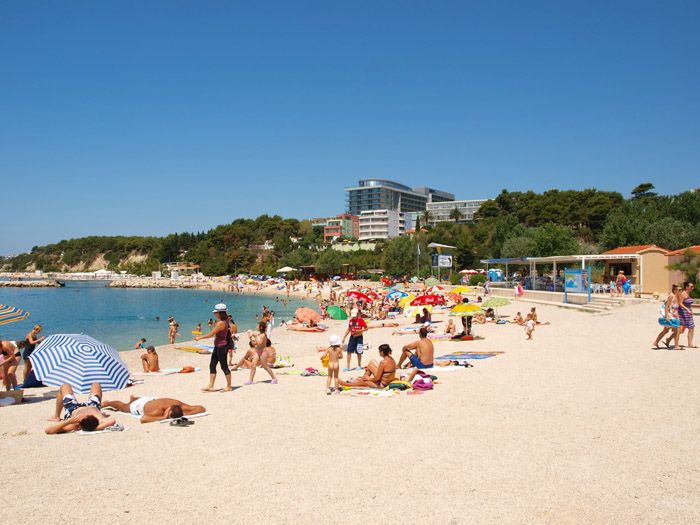
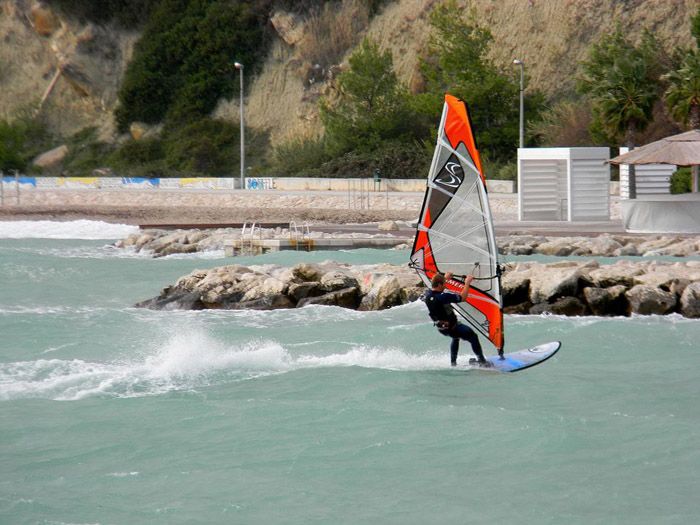
These places are just too big not to be able to accept lots of people. If the weather is not suitable for the beach and swimming, a walk by the sea is always refreshing. And in winter times Žnjan becomes a very popular windsurfing and kite surfing destination.
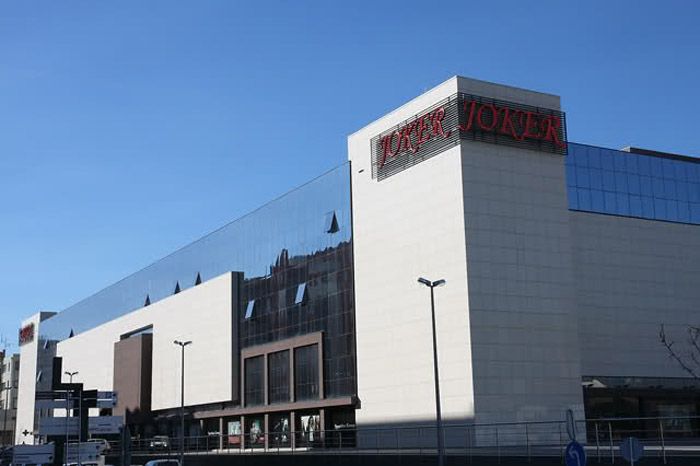
New Split is also nicely equipped with shopping sites. The closest to the old town is Joker Center. In the very heart of Split 3 lies the small but well Prima 3 which attracted lots of smaller stores to be opened in nearby streets. The biggest shopping center in Split, and in all Dalmatia is City Center One, easily accessible by car or by bus number 18.
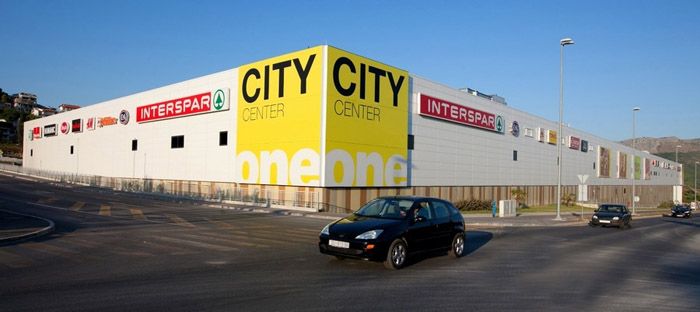
Of course, there are some downsides of staying in new Split. For Split circumstances it's fairly far from the main attractions. Also, it's far from being charming and cozy as some small stone paved alleys and streets in the old town and its vicinity. If you just want to have a place to tuck in as a base for further explorations, or you are on a tight budget, this could be your choice.
The story about Split accommodation might not be ending here, as there are lots of places around Split with available apartments or hotel rooms. However, this is what Split neighbourhoods have for full enjoyment in everything this city can offer.
PREVIOUSLY IN WHERE TO STAY IN SPLIT
Choose Neighbourhood By Your Needs

